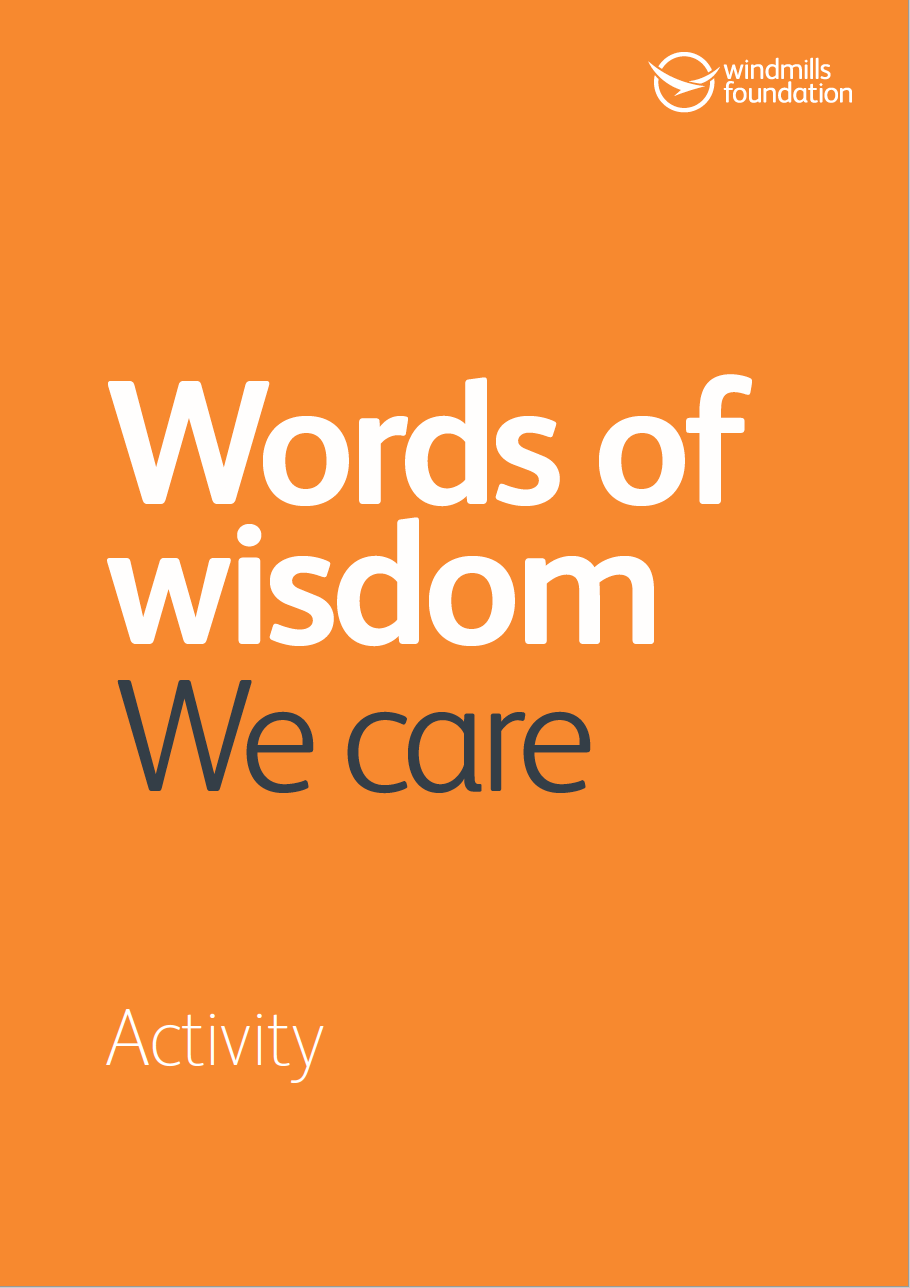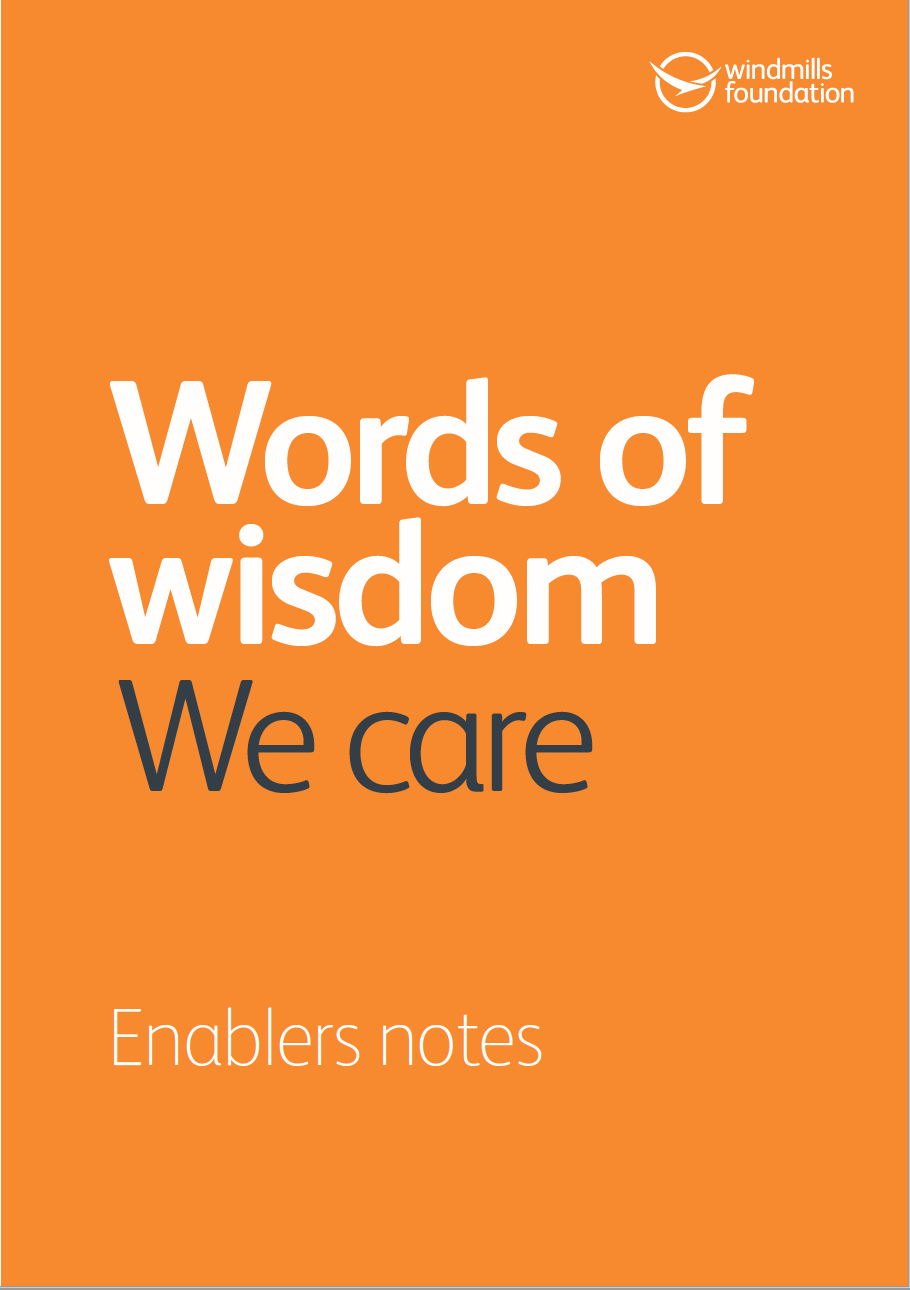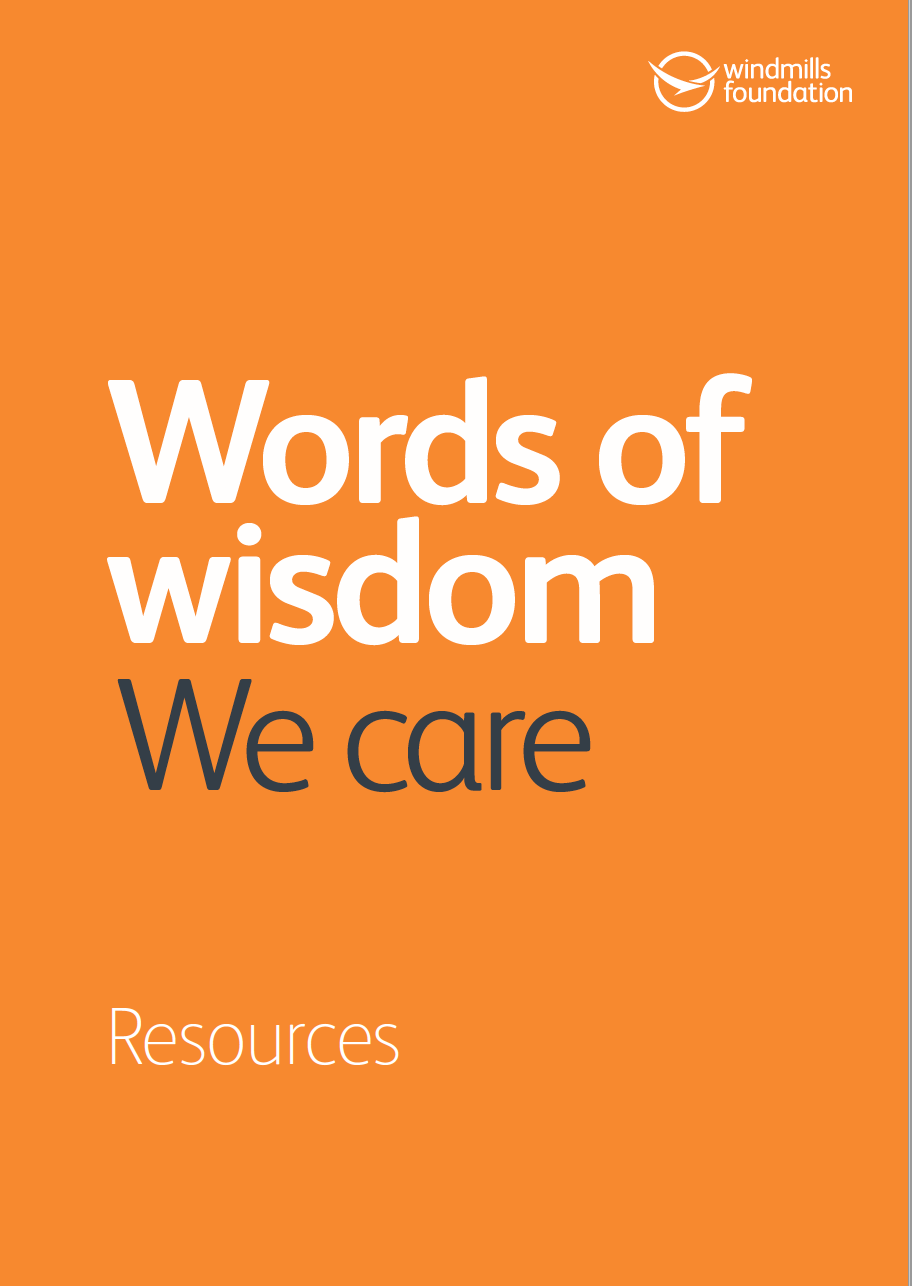We are all members of our local community, caring and interested in making it a better place and can all play our part in helping isolated and lonely people around us.
We all woke up this morning and will go to bed tonight, but we’ll never have today again. Each of us will wake up facing different joys and pleasures as well as different needs and issues. Life dishes us up opportunities as well as challenges every day of our lives. Sadly, many older people are faced with mounting needs and concerns that as members of the same community we can LOOK, LISTEN and LEARN more about.
Look
Looking at the older people closest to you, those living in care homes and neighbours in your local community, think about how the winds of change are affecting their lives. Create a list of the issues, challenges and needs that they are facing every day. This may range from loss of health, loved ones, meaning and purpose, through to concerns about health, loneliness, mobility and financial needs.
As you walk past care homes, elderly neighbours and community groups, take a broader look at what’s going on around you and think about the stories playing out behind every door you pass. Add to your list by reading your local newspaper, researching charities that support older groups in your local area and asking people who may know more about the older community, such as family members and friends, neighbours, teachers, volunteers, carers and community leaders.
Take a look at the plates which may help you identify some of the broader needs and challenges older people in your community are facing.

Now pick one or two plates or issues from your list that are really meaningful to you and things you would like to do something positive about.
Listen
Having selected one or two needs, issues or challenges you feel passionate about, it’s important to understand these in more depth, who’s involved and how you can make a lasting difference. The best way to do this is to speak to older people directly, and those involved or helping out with a particular need such as staff in care homes, relatives of older people, volunteers at Luncheon Clubs, and ask them the following questions:
WHAT is the genuine need?
WHY has this need arisen?
WHO else is helping out?
WHERE can you make the greatest difference?
WHEN can you start to make a difference?
Learn
Think about all the information you’ve collected, experiences you’ve had and wisdom you’ve gained through your creative research and conversations. Now agree with your peers where you can make the greatest difference and complete the following sentence: ‘We care about…’
Never doubt that a small group of thoughtful, committed citizens can change the world; indeed, it’s the only thing that ever has.
Margaret Meade
Why this session is important
To help your group to:
- Explore the different needs and issues facing older people in their local community
- Realise they can play an important part in addressing these needs and making their community a better place
- Understand how best to make older people SMILE and the benefits of ‘giving back’ through positive social action
- Highlight the importance of learning from the Words of Wisdom offered by older people
- Agree an action to work on
What you will need
- Copy of We Care Activity for each group
- We Care Resources
- Words of Wisdom Slide Presentation
- Access to information on older people’s needs in your local community
- Paper/pens
- 30 mins (depending on time availability)
How to do it
Welcome the group and highlight that by getting involved in this challenge they have an opportunity to create a SMILE on an older person’s face through a positive act of kindness.
In exchange they will ask the older people they meet for their Words of Wisdom about their life experiences to help with their own lives.
Introduce the SMILE Challenge. Show the Words of Wisdom Slide Presentation.
Open up the conversation by asking:
- What did they enjoy and learn from the slide show?
- Which groups of older people in your local community would love a SMILE?
- How can you make an older person SMILE?
Divide individuals into groups of 4 – 6 (although you can also deliver SMILE as a whole group or class) and ask them to create a team name.
Explain that the SMILE challenge will run over several weeks and it will be a fun, engaging and fulfilling opportunity for everyone involved.
We care
Engage the whole group in a creative exercise to map out what they believe the needs and issues are that older people are facing in their local community. Generate as big a list as possible using the prompts if required:
- What groups of older people are most at need in your local community?
- Why would they be sad?
- What problems or issues are older people you know facing?
- Which local charities support older people’s needs?
Encourage individuals to LOOK around their local community and think about the people, place and environment they live in and the sorts of worries or concerns older people may have as they wake up each morning.
You may find it useful to do some research yourself, maybe contacting your local CVS (Council for Voluntary Service), making links with local care homes, older people’s groups, charities, businesses, community and faith groups.
To help add to the list of needs, talk through the different things older people may have on their plates each day using the Plate Images.
Now ask each group to identify one or two plates or needs they care about most. This may be because someone close to them is facing a particular challenge, or they feel strongly and passionately about a particular issue.
Trying to encourage individuals and groups to take action and be responsible for their challenge themselves helps build independence, resilience, creativity and commitment; however the process can be enabled by:
- Involving parents, community volunteers, school governors and local charities as facilitators for each group
- Utilising existing links and building on previous community connections
- Piggy backing on activities that are already planned
- Focusing on one issue or need as a whole group
What other questions to ask/points to make
Be prepared to share your story – how have you made older people SMILE, what are your experiences of volunteering with older people, what needs do you feel passionate about?
Explain the benefits that ‘giving back’ can bring to our own confidence, sense of fulfilment, positive mental health, belonging and skills for life.
Make the point that when working with a group that they can all be supporters for one another, adding help, encouragement, and guidance when needed.
As the session draws to a close discuss:
- What they may have learned, or what has surprised or puzzled them about doing these activities
- Help them to identify one key action they may personally wish to take as a result of doing these activities

Words of Wisdom… We Care Activity
Download File (.pdf)
Words of Wisdom… We Care Enablers Notes
Download File (.pdf)